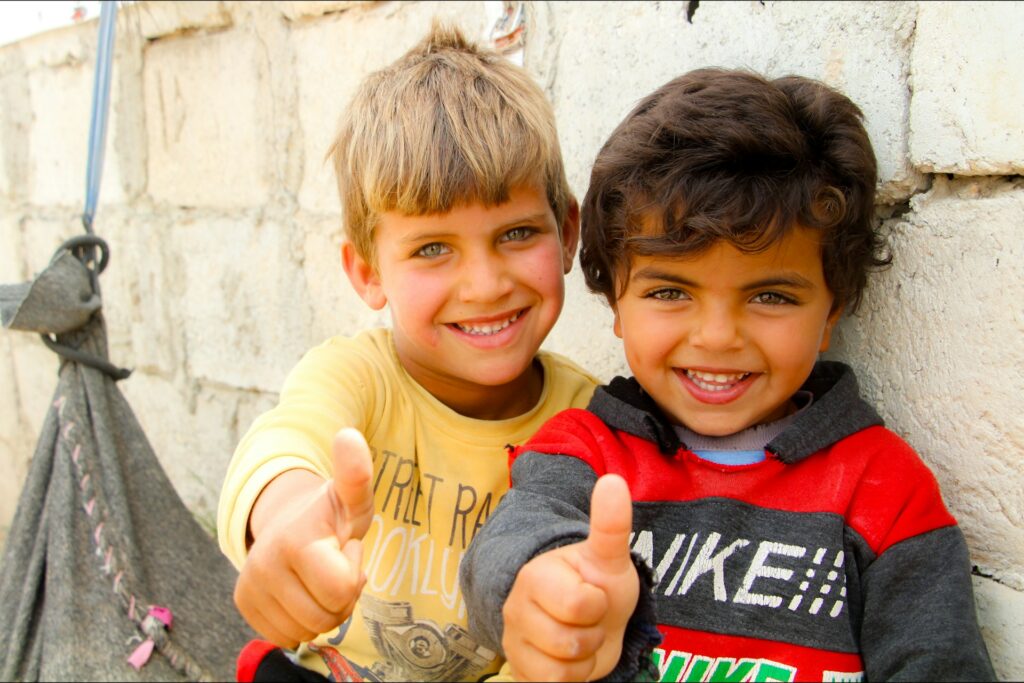Advent is the celebration of Christ’s birth and second coming.
It is from the Latin word Adventus meaning a coming or arrival. It is traditionally celebrated on the four Sundays prior to Christmas.
Each Sunday contains Bible readings from the Old Testament, Psalms, New Testament and Gospels. Many churches light a candle on each of the four Sundays with the themes being hope, peace, joy and love.
Recognizing that many of our readers are serving in churches where advent is celebrated, we are taking a break from our KidMin Leadership series to provide a series of advent devotionals.
Each is followed by an experiential activity that can be used by churches or families to teach the weekly theme.
This first week we focus on hope.
"There will be signs in the sun, moon and stars. On the earth, nations will be in anguish and perplexity at the roaring and tossing of the sea. People will faint from terror, apprehensive of what is coming on the world, for the heavenly bodies will be shaken. At that time they will see the Son of Man coming in a cloud with power and great glory. When these things begin to take place, stand up and lift up your heads, because your redemption is drawing near." He told them this parable: "Look at the fig tree and all the trees. When they sprout leaves, you can see for yourselves and know that summer is near. Even so, when you see these things happening, you know that the kingdom of God is near. "Truly I tell you, this generation will certainly not pass away until all these things have happened. Heaven and earth will pass away, but my words will never pass away. (Luke 21:25-33 NIV)
Recently I was in Texas visiting my children’s families and ran with my wife to a local CVS pharmacy to pick up a prescription. It was nestled inside a Target and so I asked my daughter if she needed anything.
She told me to check and see if they had toilet paper and if they did, buy some. I discovered there was a toilet paper shortage. Sure enough, the toilet paper section was picked bare.
I returned to California and found the same situation at our Costco. I wondered how you could have a toilet paper shortage. Toilet paper is a pretty basic commodity!
In our world today there are several basic “commodities” that are hard to find. One of them is hope.
Hope is becoming scarce in a world filled with pain and despair.
Many young people in the developing world feel a sense of hopelessness regarding the future. This leads to depression and growing numbers of adolescents contemplating suicide.
Hope is one of the four main themes of Advent, and hope is very important for our children.
Luke 21 reminds us of two important aspects, both critical to children.
1. A Better Future

Luke 21, reminds us of a future where “our redemption is drawing near” a picture similar to the glorious picture painted in Revelation 21 where a “new heaven and earth” replace the first earth that has passed away (Luke 21:33).
God himself will be with us and we will be His people. There will be no more death and sorrow and no more crying and pain.
In our evangelical tradition Advent focuses on the advent of the Christ child, but throughout church history there has been an equal emphasis on the second coming of Christ. This includes a future where the pain and despair that is so prevalent today will end.
Advent hope means we believe that the future will be better. This is crucial for children.
Our daughter was four years old when my wife and I discovered we would not be able to have more children. In fact, the medical experts told us it was a miracle that we had her. This news struck hard and left me, a child lover, in despair. I felt hopeless.
However, our daughter never gave up hope of having a brother or sister. One year later our phone rang beginning the adventure that would lead to the adoption of our son, Caleb. Our daughter was overjoyed and has always had a special love for her brother.
Thirty years later her hope of having a sister was realized when Caleb married and Mariah became the sister she had always hoped for.
Hope matters! Advent hope offers children assurance that the future is bright!
The second feature of advent hope is more elusive.
2. A Reckoning

The biblical picture of the future includes a reckoning for all people, including those that have been the source of such pain and sorrow for so many.
In Revelation 21, God promises that those who are “the vial, the murderers, the sexually immoral” and evil doers will be held to account. Now, I know this is not standard Christmas fare but for many children around the world this can come as comforting words.
They need not be enslaved by bitterness, anger and a desire for revenge, but rather can be sure that “the Son of Man is coming in power and glory” to set all things right.
The Christmas season is a time of joy and celebration but in many corners of the world it remains a season of trauma.
I have traveled in conflict zones like Lebanon, Ukraine, Democratic Republic of Congo and the dark inner city of large western cities. There you find boys and girls who continue to suffer.
God gives them hope that there is a better future and that a reckoning is coming to the unrepentant who have brought so much pain and sorrow to their lives.
This advent we can restock the shelves of hope by reminding boys and girls that God is in control. Luke 21:25-26 speaks of a world that is confusing and filled with anguish and even terror.
Advent hope offers children a vision of a beautiful future and assures them that although they may be nearly powerless, God will act on their behalf in power and glory.
Advent hope can see them through difficult days and free them from bitterness and despair.
Experiential Activity: Hope (Luke 21:25-33)
Supplies:
- An empty snack-sized bag of chips or cookies
- Fishing poles with line and clothes pin attached to the end (1 for every ten kids)
- Carnival fishing booth (A cardboard screen or sheet to create a barrier so kids can’t see behind it. A puppet theater or curtain works well, too)
- Snack-size plastic bags, one per child to hold each of the following gifts (adjust numbers so that there is one gift per child. Choose any good and bad gifts that you have on hand
- After the game is over, have several snack-sized candy bars ready to give to children that receive one of the useless gifts during the game.
Examples of wanted and unwanted gifts:
- Snack-sized candy bars
- Small toys that your age group likes (ie: mini stuffy, yo-yo, etc.)
- Juice box
- String cheese
- Hair accessory
- Baseball card of player that your kids know & like
- A doughnut
- A $1 bill
- An ordinary rock from the yard
- A broken pencil
- A piece of charcoal
- Some empty candy wrappers
- An empty juice box
- A clothes pin or some paper clips
- Broccoli or another vegetable kids don’t like
- Weeds or spent flowers from the garden
Directions:
- Tie a clothes pin to the end of the fishing pole(s)
- Set up a screen or sheet with a table behind it for the gifts and choose a leader to man the table
- Put gifts into plastic baggies so that you have an equal amount of wanted and unwanted gifts (1 per child)
- Have children line up in front of the fishing booth. One at a time, children may go “fishing” by throwing their line over the screen/sheet.
- Have a leader stand behind the screen and choose one gift as each child “fishes.” Attach the clothes pin to the baggie, and tug the line so the child knows when to reel it in.
- Let all the children watch while each child sees the gift they get. As children watch, they will start hoping that they will get something good. They will also see the disappointment on kids’ faces that don’t get something they like.
- Continue playing until everyone has received one gift, good or bad.
- If you have more than 8 kids, create two fishing stations to make things go more quickly.
- After the Connecting Questions, let each child that chose an unwanted gift exchange it for a better one or give them a snack-sized candy bar.
Connecting Questions
- How did you feel when you saw others receive good gifts?
- What were you hoping for? Why?
- How did you feel about the gift you received when it was your turn?
- For those who got an unwanted gift, were your hopes fulfilled or still unmet after your leader gave you a better gift?
Connecting Statement
Today we will hear a Bible story about hope!
Join EGM-US!
If you're serving in a church in the United States, you can be part of the exciting new launch of EGM-US by hosting a vision meeting in your area, attending a training, or just contacting us for more information about how this could benefit your next generation ministries by contacting us contacting our team at (951)587-3825 or USA@egmworld.org.
